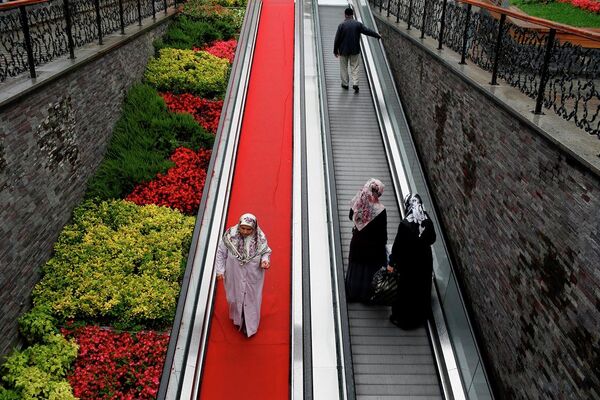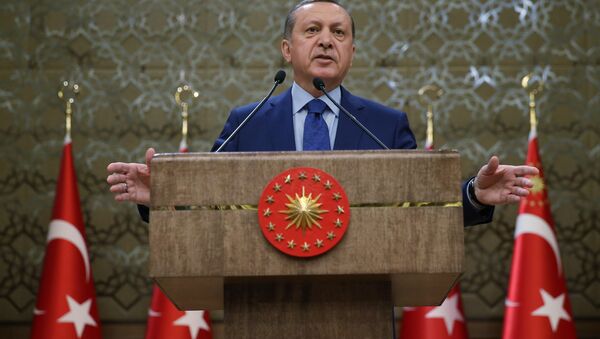This project was launched last year when Erdogan's plan to change the constitution ran into trouble after the ruling Justice and Development (AKP) party failed to secure a majority in the parliamentary elections held in June. The voting outcome was a major blow to the Turkish president since he needed a majority.

Since then, the Turkish authorities have made an effort to paint all Kurds as posing as a threat to state security trying to capitalize on voters' fears of Kurdish terrorist attacks. That strategy has worked. Snap elections held in November saw the AKP regain its lost majority, but the party still failed to secure the necessary 330 votes that Erdogan needs.
As a result, Ankara has continued its crackdown on opposition groups by toughening laws, jailing or threatening anyone dissatisfied with government policies and taking opposition media outlets under control.
"As Erdogan sees it, an executive Turkish presidency will be decided by eliminating the Turkish opposition," Kennedy observed.
Erdogan is trying to sweep these concerns under the rug using the same strategy.
"By shifting the domestic narrative to confronting imagined terror threats in Turkey's political opposition, Erdogan can at once distract attention away from the failings of his administration and fundamentally discredit his opponents, perhaps even opening them up to legal prosecution," Kennedy noted.





